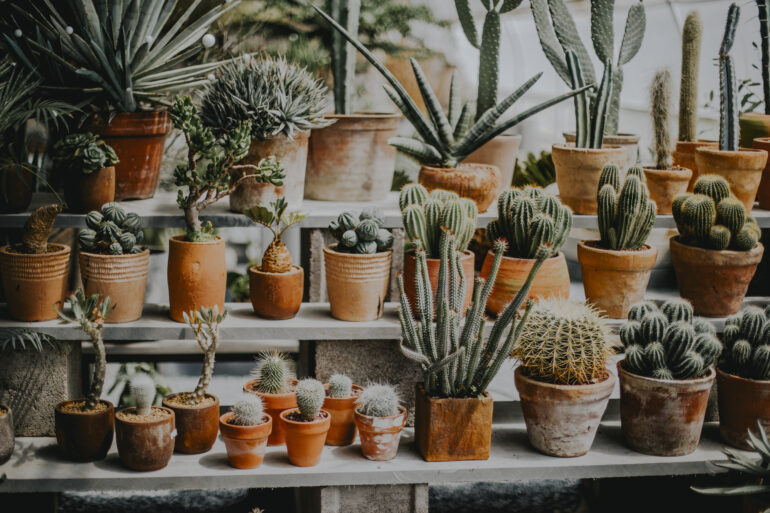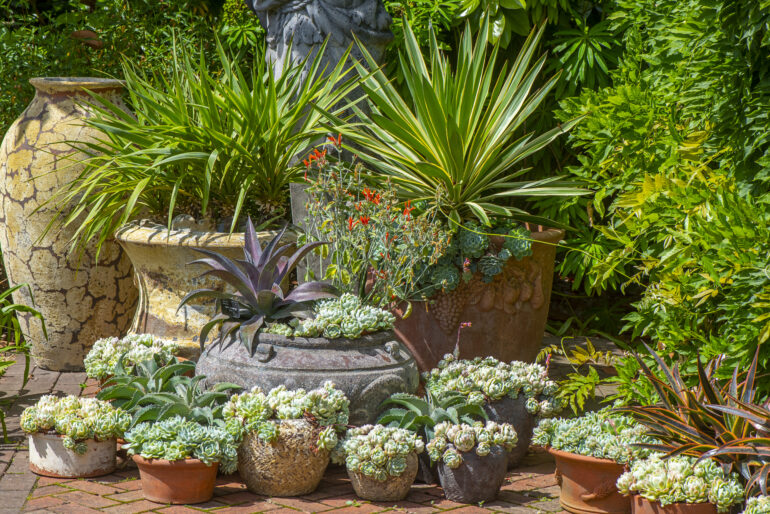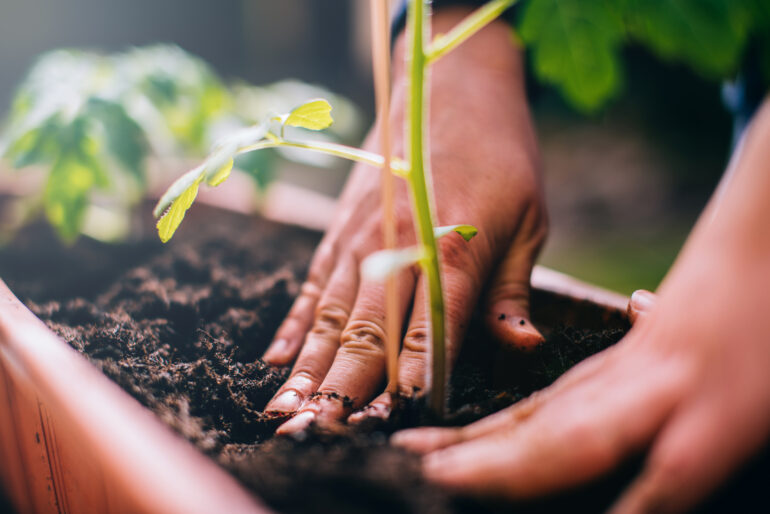Container gardening is growing in popularity. Whether you have a big or small garden, a patio, a balcony or just enough space for a few window boxes, ensuring you have the correct planter sizes will give you the best possible chance of a successful season.
Growing plants in containers – from herbs to trees – is a great way to create a wonderfully varied and colourful display anywhere you want colour and greenery. But life in containers can be a struggle for plants, so it’s important to get the right plant pot sizes as well as the right compost and maintenance schedule.
When you’re at the nursery, pot sizes will be obvious and you can usually get the help you need, yet buying them online will take a bit of research. Here, we’ll give you the standard planter sizes available in the UK as well as some handy tips about container gardening.
Plant Pot Size Guide

Plant pots (Photo: DuKai photographer via Getty Images)
Just a quick word of caution before we give you the plant pot sizes. Like most products on the market, plant pots will vary slightly in size, shape and material depending on the manufacturer. The figures below should be taken as a guide only. Before you buy, ensure that you have done your research and made sure that the flower pot sizes you get are right for your plants.
- P9 | Diameter (Top) 9 cm | Diameter (Base) 6 cm | Height 8.5 cm
- 1 Litre | Diameter (Top) 13 cm | Diameter (Base) 10 cm | Height 11 cm
- 2 Litre | Diameter (Top) 17 cm | Diameter (Base) 12 cm | Height 13 cm
- 3 Litre | Diameter (Top) 19 cm | Diameter (Base) 13 cm | Height 15 cm
- 4 Litre | Diameter (Top) 20 cm | Diameter (Base) 15.5 cm | Height 16.5 cm
- 5 Litre | Diameter (Top) 22.5 cm | Diameter (Base) 16.5 cm | Height 18 cm
- 7 Litre | Diameter (Top) 25 cm | Diameter (Base) 19 cm | Height 20 cm
- 10 Litre | Diameter (Top) 28 cm | Diameter (Base) 24 cm | Height 22.5 cm
- 15 Litre | Diameter (Top) 33 cm | Diameter (Base) 25.5 cm | Height 30 cm
- 20 Litre | Diameter (Top) 35.5 cm | Diameter (Base) 27.5 cm | Height 32.5 cm
- 25 Litre | Diameter (Top) 38.5 cm | Diameter (Base) 30 cm | Height 35 cm
- 30 Litre | Diameter (Top) 41 cm | Diameter (Base) 33 cm | Height 36 cm
- 40 Litre | Diameter (Top) 50 cm | Diameter (Base) 35.5 cm | Height 45 cm
These are the standard plant pot sizes but you can buy pots in ten-litre increments up to about 150 litres and then 230 litres, 375 litres and colossal 500 litre pots for mature trees.
Planter Sizes - Which Is Right For You?

An arrangement of Terracotta pots (Photo: Jacky Parker Photography via Getty Images)
Containers for plants come in all shapes, sizes and materials including plastic, wood, metal and terracotta. The pots themselves are down to personal preference but there’s a few things you need to look out for.
They should be frost-resistant if you’re keeping them outside all year round, and they should be big enough to give your plants space to grow and get bigger. You wouldn’t let a teenager sleep in the cot they had as a toddler and it’s the same theory with plants.
Conversely, you don’t want to put small or young plants in a pot that’s too big because it can hold too much water in the soil and the plant can get waterlogged.
Eat, Drink and Be Merry

Planting and growing (Photo: Guido Mieth via Getty Image)
Like humans, providing the optimum conditions to grow and flourish depends in part on what is being consumed. Choosing the right compost, food and watering schedule is important and you can get lots of good advice online and at your local nursery. Pot sizes are important but here are a few additional pointers to help you along the way –
Watering – plants and flowers in containers have less access to natural moisture than those growing in gardens so they may need more watering.
Feeding – again, container plants usually get fewer nutrients than their garden-planted cousins so it’s possible they could require additional feeding.
Compost – go into any garden centre and there will be lots of different types of compost available. It can be confusing so make sure you speak to someone in the know.
So there we have it, our quick guide to plant pot sizes and a few extra tips to help you on your way to successful container gardening!












